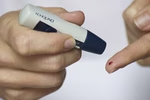
The State Secretary at the Ministry of Labour, Ivan Vidis, informed Parliament on Wednesday that with a gross minimum wage of €970 in 2025, Croatia has overtaken nine EU member countries in terms of minimum wage purchasing power parity.
"Now we have overtaken nine EU member countries in terms of minimum wages in purchasing power standards. We have even overtaken some 'older' member countries such as Portugal, Hungary and the Czech Republic," said Vidis at the presentation of the final draft amendment to the Minimum Wage Act.
Opposition: Minimum wage still not enough for a decent life
Opposition MPs have no objections to an increase in the minimum wage, but warn that it is still not enough for a decent living.
Miso Krsticevic from the SDP party argued that the minimum wage is set too low and will exceed the reference values of 50% of the average wage and 60% of the median wage by March 2025.
"The directive does not say that minimum wages can guarantee a decent standard of living, but that they must. And that is not the case here," he explained, arguing in favour of automatic indexation of minimum wages.
Tomislav Golubic, also from the SDP, pointed out that the minimum wage in Slovenia is €200 higher than in Croatia.
Ivica Ledenko from the Most party supported the idea of indexing minimum wages and explained that wages should be between €1,800 and €2,000 net to ensure a decent living.
The opposition has criticised the fact that the law does not address collective agreements, even though half of the EU directive that forms the basis for the amendment is dedicated to collective bargaining. According to opposition MPs, the directive requires at least 80% of employees to be covered by collective agreements, whereas in Croatia only 50% are covered and in the private sector only 20%.
Buric (HDZ): Wages have risen twice as fast as inflation
Majda Buric from the ruling HDZ party reacted to the criticism and said that the opposition was obviously annoyed by the government's successes and was trying to discredit it.
"During this government's term in office, the average wage has risen by 76%, and in real terms by as much as 36%. The opposition's claims that inflation has eaten into wages are inaccurate; if this was the case, it happened during the SDP government. Real and nominal wage growth is now on a clearly positive trend and the fact is that wages have risen twice as fast as inflation," she said.
State Secretary Vidis explained that according to the EU directive, an adequate minimum wage is at least 50 per cent of the gross average wage or 60 per cent of the gross median wage in the respective member state.
According to the government's latest regulation, the minimum wage will be 54.10 of the gross average monthly wage and 63.11% of the gross median wage, Vidis added.
Regarding the section of the directive on social dialogue, Vidis explained that the coverage of collective agreements in Croatia is currently 62%.
Kakvo je tvoje mišljenje o ovome?
Pridruži se raspravi ili pročitaj komentare



 Srbija
Srbija
 Bosna i Hercegovina
Bosna i Hercegovina
 Slovenija
Slovenija



























































